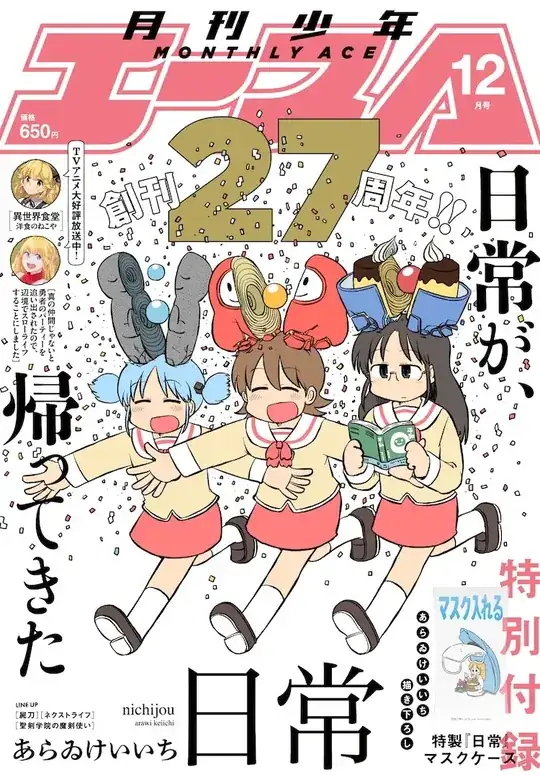The title and the bulk of the question seem to be asking separate questions - the question in the title, why Nichijou is being re-serialized, is relatively easy to answer.
The official answer is: because the author, Keiichi Arai, wants to. That is, as far as I know, all there is to it - he hasn't given any other reason in his Twitter or anywhere else.
As long as the author and company responsible for its serialization agree (and depending on the contract clause, one of them might not even be necessary), there isn't legally really anything preventing re-serialization of a completed manga.
Of course, the bigger hurdle might be elsewhere - a completed manga ideally means that its story is essentially complete, and there isn't anything significant that can be added postscript without it feeling extraneous. So often, neither the fans nor the mangaka really desire additional content within the same manga series. This doesn't preclude the telling of additional stories within the same universe, of course, but those stories are often different enough (e.g. a change in main character or tone, a time skip, etc.) to warrant a sequel or spin-off (e.g. the Kosaku Shima series, Naruto -> Boruto, To Love Ru -> To Love Ru Darkness)
As it stands, there are a few reasons why a completed (and not simply discontinued or abandoned) manga would re-serialize much later without moving to a sequel or spin-off:
The manga has a more omnibus tone, and the lack of a overarching story means additional chapters are less likely to feel tacked on (Nichijou, as posed in the question, would be a prime example)
The manga ends with conclusion of an arc (and less of a grand finale), and the mangaka had some ideas to continue the story - and decides to go for it after a hiatus. (Rurouni Kenshin Hokkaido arc is a borderline example, and Dragon Quest: The Adventure of Dai Underworld arc would be a planned, but unexecuted, case.)
The ending was unsatisfactory, and a proper conclusion is added later (Shaman King)
There are new ideas, but not enough (or require too much continuity) to justify a reboot, spin-off or sequel (likely Bleach)
There will be other reasons and examples of course, but the above is the extent of my knowledge.
